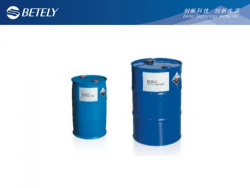An Investigative Analysis of Organic Meat: Savoring Purity
Organic flesh awaits you in Toronto, a delectable universe. These are conscientious carnivores and those in search of more sustainable diets who should read this essay. We will juxtapose all-natural and certified organic meats and discuss the environmental and health benefits of opting for organic options. Therefore, we invite you to join us at our virtual table as we savor the unparalleled quality of organic beef and discuss the process of selecting options that will not only gratify your palate but also your morals. We shall excavate.
Natural Labels versus Certified Organic Labels
What are the meanings of the certifications “certified organic” and “all-natural” that appear on meat packaging? Attempt to decipher this riddle. First, organic certification. Produced organically, your preferred meats bearing this label were. The aforementioned regulations prohibit the use of industrial pesticides, fertilizers, growth hormones, antibiotics, and GMOs. In turn, this results in a product that is more environmentally and human-friendly.
On the contrary, organic. Upon closer inspection, this label appears to be unique. Unlike Certified Organic meats, all-natural products are not subject to regulation. “All-natural” indicates that no artificial preservatives or additives were utilized in the manufacturing process; however, it does not provide an assurance of proper animal nutrition.
Why choose organic certification over all-natural? Sustainably and qualitatively, certified organic meat is superior. The livestock that provided organic, chemical-free feed for these meats roamed on pastureland.
Understanding these identifiers is necessary for making informed plate selections. You safeguard your health and contribute to the improvement of ecosystems by favoring certified organic meats over all-natural alternatives.
Seek out and select organic meat of superior quality.
When purchasing organic livestock, there are numerous factors to consider. Before anything else, search for organic certification. Meat production that adheres to stringent regulatory standards instills confidence in consumers.
Then, investigate nearby suppliers or plantations of organic meat. Recognize individuals who prioritize sustainable agriculture and animal welfare. To ascertain these sources, one may consult farmers markets and produce co-ops.
Regarding meat procurement, as well. Opt for hormone-free and antibiotic-free pasture-raised meats. Grass-fed beef is considered a healthier option due to its elevated omega-3 fatty acid content.
It is critical to label openness. Such deceptive terms as “natural” and “free-range” may be utilized by corporations. Discover the distinctions between these labels and those that denote organic certification.
Make inquiries! Investigate the methods and certifications of suppliers and producers. This is readily available from a dependable supplier.
Selecting organic beef that satisfies your sustainability and animal welfare criteria will be facilitated by the following procedures.
Sustainable farming is aided by the purchase of organic meat.
While making a conscientious dietary decision, selecting organic meat promotes sustainable agriculture. Eating organic meat benefits both your health and the environment.
Organic cultivation is predicated on the value of biological diversity. To preserve ecosystems and soil quality, organic producers employ natural processes. Animals and the environment should be spared the use of synthetic antibiotics, hormones, and pesticides.
Comparatively, organic farms treat their livestock more compassionately. Their movement and behavior are unrestricted when they are outdoors. As a result, their environmental impact is diminished and their health is conserved.
Not flavor or quality is compromised when sustainable cultivation is supported. Numerous individuals believe that organic meat tastes better due to its superior animal welfare and nutrition.
Supporting small-scale producers who engage in sustainable farming is the result of purchasing from Toronto Organic Store from local sources. These producers prioritize the implementation of regenerative agriculture techniques that bolster soil health and effectively sequester carbon dioxide.
Eating organic beef can provide us with the benefits of purity and sustainable agriculture. Supporting future generations while improving your own well-being is beneficial.
In summary,
Supporting environmentally sustainable agriculture, organic beef is beneficial to one’s health. It is possible to select livestock more intelligently if you can distinguish between certified organic and all-natural labels.
Consult local farmers’ markets or an organic skincare store in Toronto for organic meat that has been reared ethically. Select meats that are devoid of antibiotics, hormones, and pesticides, as well as inquiries regarding their origin and processing.
While supporting producers who protect our land and animals, organic meat encourages a healthy lifestyle. Consume organic meat to experience the delight of purity while simultaneously promoting environmental health and well-being.
When in Toronto, consider incorporating organic meat into your next meal or grocery cart trip. While helping to create a more sustainable future, you will savor tasty flavors.
For More Info:- https://goo.gl/maps/5ZUKvB69bqMoXgZn8























































